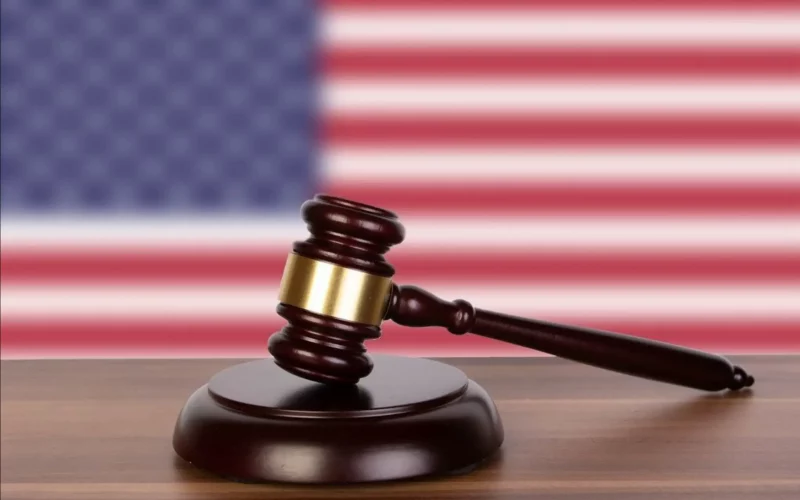In a historic move that could reshape the dynamics between the U.S. government, social media companies, and First Amendment rights, U.S. Federal Judge Terry A. Doughty has issued a sweeping preliminary injunction that bars certain government officials from discussing “protected speech” with major social media firms.
Stemming from a lawsuit filed by Republican attorneys general from Louisiana and Missouri, this ruling is expected to significantly impact how information related to public health, elections, and potentially harmful content can be censored on platforms like Facebook, Twitter, and Google.
The lawsuit, first filed by then Republican Missouri Attorney General Eric Schmitt and Louisiana Attorney General Jeff Landry in May, claimed White House officials colluded with or coerced Big Tech companies to “suppress disfavored speakers, viewpoints, and content” on their platforms with “dis-information,” “mis-information” and “mal-information” labels.
The injunction signifies a triumph for the state attorneys general, who allege that the Biden administration has sanctioned a “vast federal ‘Censorship Enterprise’” promoting tech giants to exclude politically undesirable perspectives and speakers. Conservatives who argue that the government is suppressing their speech also consider it a victory. The attorneys general claim that such actions constitute “the most blatant infringements of the First Amendment in US history.”
The injunction lists several constraints that might be imposed on federal authorities when dealing with tech firms, including discouraging them from urging, encouraging, or pressuring social media companies to suppress or remove protected free speech content.
Judge Doughty clarified that officials are permitted to converse with tech companies about posts or accounts linked with criminal activities like child pornography. He mentioned that the Federal Bureau of Investigation has relied on social media companies’ cooperation for years to identify pedophile networks. Officials will also be permitted to discuss national security threats, illicit political campaign activities, and cyberattacks.
While the final decision in the case is still pending, it is widely expected that Judge Doughty will side with the Republicans, bringing to a halt more than a decade of collaborative efforts between federal authorities and tech industry leaders who possess significant power to regulate public dialogue.
The preliminary injunction could hold substantial implications for tech firms that frequently communicate with government officials, particularly during elections and emergencies such as the Covid-19 pandemic.
The judge’s order restricts the actions of some executive agencies with a range of responsibilities across the federal government, including the Department of Justice, State Department, Department of Health and Human Services, and the Centers for Disease Control and Prevention.
In his order, Judge Doughty allowed some exceptions for communication between government officials and the companies, such as warnings of national security threats, criminal activities, or voter suppression.
A White House representative stated that the Justice Department “is reviewing the court’s injunction and will assess its options in this case.”
“This administration has advocated for responsible actions to safeguard public health, safety, and security in the face of challenges like a deadly pandemic and foreign attacks on our elections,” the official said. “We consistently believe that social media platforms have a critical obligation to understand the impacts their platforms have on the American people, but should independently determine the information they present.”
Neither Google, one of the companies named in the suit, nor Facebook’s parent company Meta responded immediately to requests for comments, while Twitter did not reply.
The injunction is an important turning point in the long-standing partisan dispute over speech on social media. Republicans have long argued that social media companies’ policies to address disinformation related to elections and public health have led to unjust censorship of their political views. On the other hand, Democrats have argued that the companies have not been sufficiently active in policing their services to ensure they do not destabilize democratic institutions.
The state attorneys general representing the Republicans argue that the Biden administration violated the First Amendment by threatening legal action against tech firms amid disputes over speech on the platforms. Their complaint cites instances when the Biden administration threatened to take antitrust action against the companies or repeal Section 230, a legal shield that protects tech giants from lawsuits.
The injunction comes at a time when social media companies have begun to roll back some of the programs designed to combat disinformation. Under Elon Musk’s ownership, Twitter has significantly reduced its Trust and Safety division and has increased its reliance on Community Notes, its program of crowdsourced fact checks on tweets. Meta, the parent company of Facebook and Instagram, has laid off staff working on content moderation amid financial pressure.
The federal court injunction now sets up the likelihood of appeal to the U.S. Supreme Court. The nation’s highest court has been racking up victories for independents and conservative Americans, upholding freedom of conscience and religious liberty, while striking down discriminatory affirmative action practices at universities and President Biden’s student loan forgiveness order.

